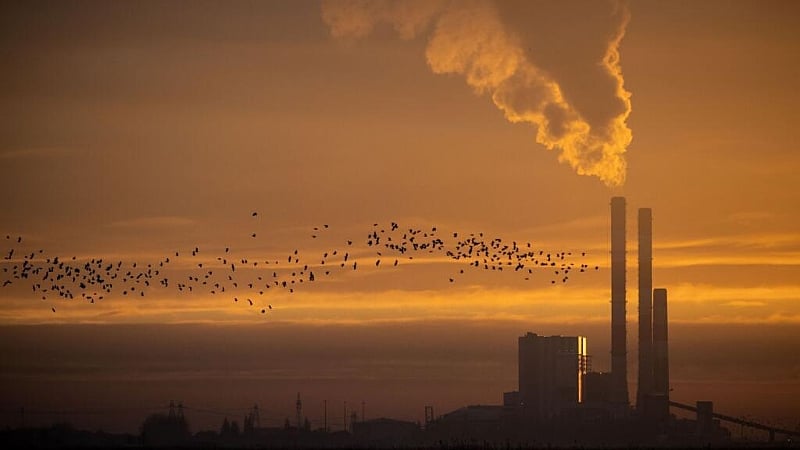France’s Greenhouse Gas Emission Reduction Slows in 2024, Raising Concerns about Meeting Climate Targets
France experienced a significant deceleration in its greenhouse gas emission reductions in 2024, achieving only a 1.8% decrease compared to a more substantial 5.8% decline the previous year. This slowdown raises concerns about the nation’s ability to meet its ambitious climate goals, particularly its commitment to halve emissions by 2030 compared to 1990 levels. While the overall trend continues towards lower emissions, the 2024 reduction of 6.7 MtCO2e falls far short of the required annual reduction of 15 MtCO2e needed to achieve the 2030 target. Although Minister Pannier-Runacher maintains that France remains "on the right track," she acknowledges the difficulties encountered in the transport and building sectors, which have hindered overall progress. A planned ecological planning council aims to address these lagging sectors and develop strategies to accelerate emission reductions.
The energy sector stands out as a positive performer, with an 11.6% decline in emissions attributed to France’s strong reliance on nuclear and renewable energy sources. This success underscores the effectiveness of transitioning to cleaner energy sources in driving down emissions. However, the limited progress in transport, residential and commercial buildings, and heavy industry reveals the challenges in decarbonizing these crucial sectors. These sectors require targeted interventions and policy adjustments to achieve substantial emission reductions. The juxtaposition of positive developments in the energy sector with the sluggish progress in other sectors highlights the complex and multifaceted nature of the decarbonization challenge.
The slowdown observed in France reflects a broader trend among developed nations, with Germany and the United Kingdom also experiencing decelerated emission reductions in 2024. The United States recorded a near-stagnation in emission levels, while China saw its emissions continue to rise despite growth in renewable energy. This global context underscores the need for concerted international efforts to accelerate emission reductions and mitigate the impacts of climate change. The varying levels of progress among nations highlight the different challenges and approaches taken in tackling this global issue.
Environmental organizations have expressed concerns about the slowdown in France, attributing it to a perceived "political backsliding on ecological transition." They emphasize the urgency of implementing strong proposals and lasting solutions, particularly for the transport and building sectors, while also considering the financial constraints faced by households undergoing energy transitions. This call for action underscores the need for a comprehensive and inclusive approach that considers both environmental and social factors.
Citepa’s preliminary estimates acknowledge potential overestimations due to pending assessments of emissions from the waste and agriculture sectors. Final figures are expected to reveal a potentially larger emission reduction, offering a more complete picture of France’s progress. This highlights the inherent complexities and uncertainties involved in emission accounting and projections. The ongoing revision of France’s national low-carbon strategy underscores the continuous effort to adapt and refine strategies based on emerging data and evolving circumstances.
The current global trajectory in carbon pollution reduction is projected to result in approximately 3°C of warming above pre-industrial levels, significantly exceeding the Paris Agreement target of 1.5°C. This stark reality emphasizes the urgent need for accelerated global action to curtail emissions and avert the most severe consequences of climate change. France, along with other nations, must strive to exceed its current targets and contribute to the global effort to mitigate climate change. The warning from Citepa about the need for strengthened reduction targets in the coming years underscores the ongoing challenge of aligning national strategies with global climate objectives. This requires continuous evaluation and adjustment of policies and targets in light of the evolving scientific understanding of climate change and the progress made towards global goals.


